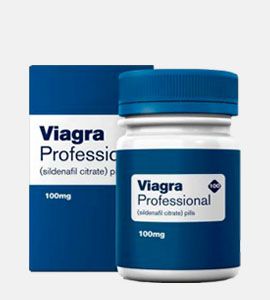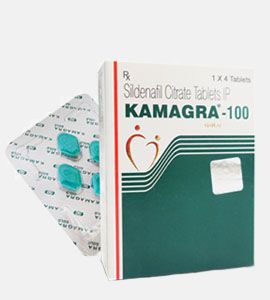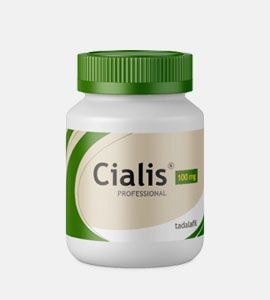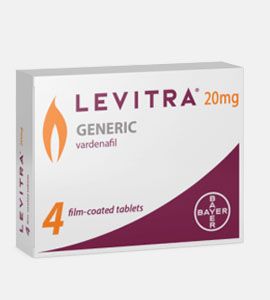Infertility is a growing problem worldwide. It affects about one in six couples worldwide, and researchers estimate that about one in three such cases is linked to a problem in the man. Although infertility is not always curable, it can sometimes be improved with a healthy diet, supplements and lifestyle changes.
In this article, I will list some of the main lifestyle factors, foods and supplements that are related to improving fertility in men.
- Libido: also known as sex drive, describes a person’s desire to have sex. Foods or supplements that claim to increase libido are called aphrodisiacs.
- Erectile dysfunction: also known as impotence, is a man’s inability to achieve and maintain an erection.
- Sperm quantity: an important aspect of semen quality is the quantity or concentration of sperm in a given quantity of ejaculate. I have included ejaculation problems in a separate category where you can read about the most common ejaculation disorders and their solutions.
- Sperm motility: a basic function of healthy sperm cells is the ability to swim. This motility is measured as the percentage of moving sperm cells in a given amount of semen.
- Testosterone levels: low levels of testosterone, the male sex hormone, can account for infertility in some men.
Infertility can have multiple causes and may also depend on genetics and health conditions, in addition to which a healthy lifestyle and diet are important. Certain foods and nutrients are known for their fertility benefits.
Here are 10 science-backed ways to increase male fertility and sperm count.
Take D-aspartic acid supplements
D-Aspartic acid is a biogenic amino acid that is marketed as a dietary supplement. It is not to be confused with L-aspartic acid, which forms the structure of many proteins and is much more common than D-aspartic acid. The latter is mainly present in certain glands, such as the testes, and is also found in semen and sperm cells.
Scientists believe that D-aspartic acid is involved in male fertility. The fact is that its levels are significantly lower in infertile men than in fertile ones.
This fact is supported by studies showing that supplements containing D-aspartic acid can increase levels of testosterone, a male sex hormone that plays an essential role in male fertility.
For example, one research study in infertile men showed that taking 2.66 grams of D-aspartic acid for three months increased their testosterone levels by 30-60% and sperm count and motility by 60-100%.
The number of pregnancies also increased in the female partners of the men tested.
Another controlled study in healthy fertile men found that taking 3 grams of D-aspartic acid for two weeks increased their testosterone levels by 42%.
However, the evidence is not the same for every study. Tests in athletes and trained men who had normal to high testosterone levels showed no effect on testosterone levels when taking D-aspartic acid, and when taken in higher doses, these levels even decreased.
In summary, then, current evidence suggests that D-aspartic acid supplementation may increase fertility in men with low testosterone levels, whereas these beneficial effects have not been confirmed in men with normal levels.
Further studies need to be conducted that can investigate the potential long-term risks and benefits of D-aspartic acid.
Conclusion:D-Aspartic acid supplements may increasetestosterone levels and fertility in infertile men or men with low testosterone levels. However, researchers have not yet come to definitive conclusions in this regard.
Exercise regularly
Exercise not only boosts your self-confidence and physical performance, but also increases your testosterone levels.
Studies have shown that men who exercise regularly have higher testosterone levels and better testosterone quality than men that do not exercise.
However, you should not overdo it with exercise. With excessive doses, there may even be a decrease in testosterone. You can minimize the risk by taking adequate amounts of zinc.
If you exercise infrequently and want to increase your fertility, then exercise should become one of your priorities.
Conclusion: regular exercise can increase your testosterone levels and improve your fertility.
Enough vitamin C
Oxidative stress occurs when levels of reactive oxygen species reach harmful levels in the body.
This happens when the body’s own antioxidant defenses are depleted due to disease, aging, an unhealthy lifestyle, or pollutants in the environment.
Reactive oxygen species are constantly produced in the body and in healthy people their levels are regulated naturally. High levels can damage tissue and cause inflammation, increasing the risk of chronic diseases.
There is also some evidence that oxidative stress and excessively high levels of reactive oxygen species can lead to infertility in men.
Adequate intake of antioxidants, such as vitamin C, can help to eliminate some of these harmful effects. There is also evidence that vitamin C supplements can improve sperm quality.
A study in infertile men showed that taking 1000-mg doses of vitamin C twice a day for two months increased sperm motility by 92% and sperm count by up to 100%. It also reduced the proportion of deformed sperm cells by 55%.
TIP: if you are looking for a quick solution, I recommend erection pills that work best for me personally: Viagra, Kamagra, Cialis, Levitra.




Another study in Indian industrial workers suggested that taking 1,000 mg of vitamin C five times a week for three months may protect against DNA damage caused by reactive oxygen species in sperm cells.
Vitamin C supplements also significantly improved sperm quantity and motility, while reducing the amount of deformed sperm cells.
Together, these results suggest that vitamin C may help improve fertility in infertile men suffering from oxidative stress.
However, control studies still need to be carried out before definitive conclusions can be drawn.
Conclusion: oxidative stress can lead to infertility in men. Some evidence suggests that taking antioxidant supplements such as vitamin C may improve fertility.
Relax and minimise stress
Stress can reduce your sexual satisfaction and impair your fertility.
Scientists believe that these adverse effects of stress may be partly explained by the hormone cortisol.
Long-term stress increases cortisol levels, which has strong negative effects on testosterone. When cortisol levels in the body rise, testosterone levels tend to fall.
While medication is given for severe, unexplained anxiety, milder forms of stress can be relieved by various relaxation techniques.
Managing stress can be as simple as taking a walk in nature, meditating, exercising or spending time with friends.
Conclusion:Stress can dampen your sexual satisfaction and impair your fertility. Therefore, relaxation and stress management should be on your daily agenda.
Take enough vitamin D
Vitamin D is another nutrient that can increase testosterone levels.
One study showed that men with vitamin D deficiency were more likely to have low levels.
A control study conducted on 65 men with low testosterone levels in the body and lacking vitamin D supported these results. Taking 3,000 IU (international units) of vitamin D3 every day for a year increased their testosterone levels by 25%.
In addition, high levels of vitamin D are associated with higher sperm motility, but the evidence so far is conflicting.
Conclusion: taking vitamin D supplements can increase testosterone levels in men with a deficiency of this vitamin in the body and at the same time low testosterone levels.
Try Tribulus Terrestris
Tribulus terrestris (ground anemone), sometimes referred to as plant viagra, is a medicinal herb often used to increase male fertility.
One study in men with low sperm counts showed that taking 6 grams of tribulus root daily for two months improved both erectile dysfunction and libido.
WhileTribulus terrestrisdoes not increase testosterone levels, research suggests that it may support the libido-boosting effects of testosterone.
However, more studies need to confirm these aphrodisiac effects, which would also assess the long-term risks and benefits.
Conclusion:One study suggests that Tribulus terrestris may increase libido and improve erections in men, but the evidence is so far insufficient.
Try fenugreek
Fenugreek (Trigonella foenum-graecum) is a popular culinary and medicinal plant.
One study examined the effects of taking 500 mg of fenugreek extract daily on 30 men who were actively and intensively training four times a week.
The men experienced a significant increase in both testosterone and strength levels and fat loss compared to those who were only given a placebo.
Another study, which tested 60 healthy men, gave them 600 mg of Testofen, which is a dietary supplement containing fenugreek extract and minerals. When taken daily for six weeks, they experienced an increase in libido, sexual performance and strength.
These findings were confirmed by another, larger study conducted on a sample of 120 men. They took 600 mg of Testefen daily for three months and each of them confirmed improved erections as well as frequency of sexual activity.
TIP: if you are looking for a quick solution, I recommend erection pills that work best for me personally: Viagra, Kamagra, Cialis, Levitra.




In addition, this supplement significantly increased the testosterone level in the body.
Keep in mind that all of these studies only used fenugreek extracts. It is unlikely that whole fenugreek, used in cooking or infused in a tea, would have the same effects.
Conclusion: there are several studies that have confirmed that taking fenugreek for aiding sexual performance and increasing libido is promising. However, more studies still need to be done with supplements containing the extract of this plant.
Take sufficient amounts of zinc
Zinc is an essential mineral found in a variety of animal products such as meat, fish, eggs, shellfish.
Taking adequate amounts of zinc seems to be one of the cornerstones of male fertility.
Research studies show that low levels of zinc in the body, or a lack of it, is linked to low testosterone levels, poor sperm quality, and an increased risk of male infertility.
Also, for those men who have low levels of zinc in the body, taking zinc supplements increases testosterone levels and the amount of sperm in the ejaculate.
Additionally, zinc supplements can limit the decrease in testosterone levels that is associated with excessive amounts of intense exercise.
However, control studies are needed to confirm these results.
Conclusion: taking zinc supplements can increase testosterone levels and improvefertilityin men with low levels of zinc in the body.
Consider taking Ashwagandha
Ashwagandha (Withania somnifera) is a medicinal plant that has been used in India since ancient times.
Studies suggest that ashwagandha may improve male fertility by raising testosterone levels in the body.
One study conducted on men with low sperm cell counts showed that taking 675 mg of ashwagandha root extract daily for three months significantly increased fertility.
To be specific, sperm quantity increased by 167%, semen quantity by 53% and sperm motility by 57% compared to the condition at the beginning of the study. In comparison, there were only small differences from baseline in those who took only placebo.
Increased testosterone levels may be partially responsible for these beneficial effects.
A study conducted on 57 young men who went through a weight training program showed that taking 600 mg of ashwagandha root extract daily significantly increased testosterone levels in the body and muscle volume over those who took only a placebo.
TIP: if you are looking for a quick solution, I recommend erection pills that work best for me personally: Viagra, Kamagra, Cialis, Levitra.




These findings are supported by research evidence suggesting that dietary supplements containing ashwagandha may increase sperm count, sperm motility, as well as antioxidant status and testosterone levels.
Conclusion: Ashwagandha is a medicinal plant that can increase testosterone levels in the body and improve male fertility.
Eat maca root
Macaroot is a popular plant that originates from central Peru. There it is traditionally used to increase both libido and fertility.
A couple of studies have shown that taking 1.5-3 grams of dried maca root daily increases sexual desire and libido.
Studies also suggest that maca root may improve sexual performance. According to men with mild erectile dysfunction, taking 2.4 grams of dried maca root slightly improved both erectile function and sexual well-being.
Taking 1.75 grams of maca root powder daily for three months equally increased both sperm count and sperm motility in healthy men.
These findings have been partially confirmed by other reviews, but the researchers also note that the evidence is still weak and more research is needed before definitive conclusions can be drawn.
In addition, maca root does not seem to affect hormone levels. Taking 1.5-3 grams of maca root daily for three months had no effects on healthy and fertile men in terms of testosterone levels or other reproductive hormones.
Conclusion: taking supplements containing maca root can improve libido as well as fertility and sexual performance.
Other tips
There are many strategies that can improve your fertility, although it always depends on the cause. Also, keep in mind that both fertility and libido usually go hand in hand with your overall health.
Therefore, what will improve your general health is therefore likely to improve your fertility at the same time.
We are therefore adding 8 more tips to increase fertility and sperm quantity/quality:
Live a healthy lifestyle: an unhealthy lifestyle worsens your overall health and therefore your fertility.
Get rid of excess weight: obesity is linked to infertility. If you are both obese and infertile, losing weight must become your priority.
Limit alcohol: Avoid hard alcohol, as it can reduce both testosterone levels and sperm quality
Take enough folate: Some studies suggest that low folate intake may impair sperm quality.
Get adequate sleep: getting enough sleep is vital to staying healthy. Limited or even excessive sleep is also associated with low sperm quality.
TIP: if you are looking for a quick solution, I recommend erection pills that work best for me personally:
Eat walnuts: Eating plenty of antioxidant-rich foods such as walnuts is likely to contribute to fertility.
Consider taking supplements: antioxidant supplements seem to work too. Some evidence suggests that coenzyme Q10 improves sperm quality.
Don’t eat too much soy: Soy is rich in isoflavones, which are linked to lower sperm quality and female hormone production
Conclusion: if you are infertile, changing your lifestyle and considering the supplements listed above may benefit you and improve your situation. However, you also need to take into account the fact that there is not too much evidence for most of them yet and more research needs to be done.
Summary and fertility supplements
Infertility affects many men around the world. If you are one of them, focus first on improving your overall health. Many of the tips listed in this article are a key component of a healthy lifestyle. However, none of them work one hundred percent for everyone. But if you have low testosterone levels, it’s quite likely that they will help you.
Nutritional supplements are certainly worth considering as they not only help with overall health but also have a positive effect on fertility. I offer you a table of those tablets with which I have my own experience:

